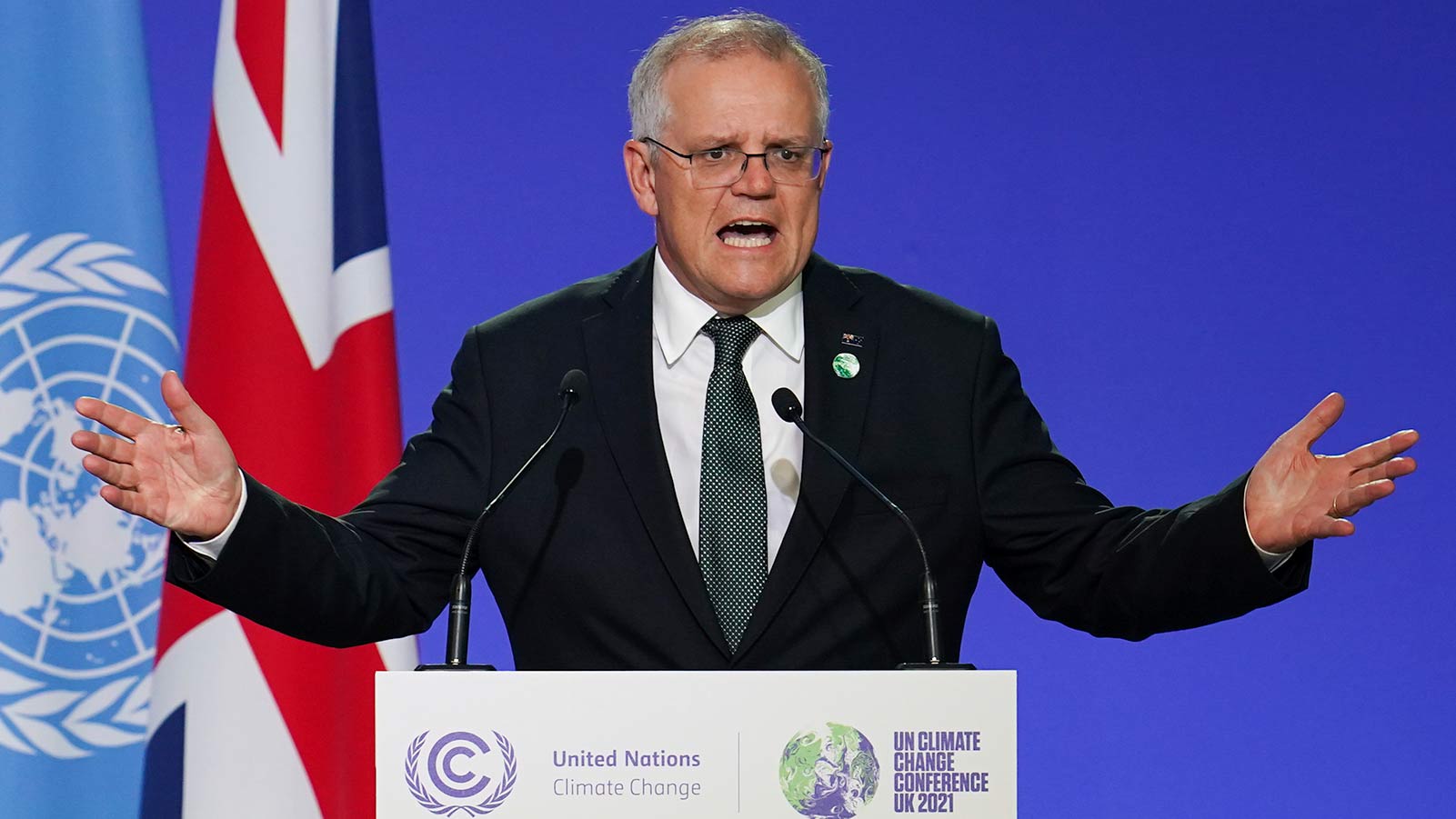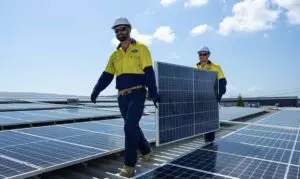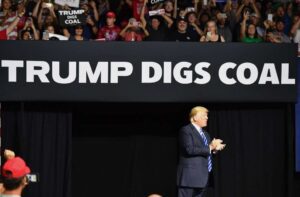Prime minister Scott Morrison has flown out of Glasgow and the COP26 climate talks with Australia’s international reputation in a state of crisis and the world largely unconvinced that Australia is committed to taking genuine action on climate change.
Morrison left Glasgow on a RAAF jet on Wednesday morning (Australian time), leaving diplomats to do much of the negotiating for the remainder of the talks, and to attempt to win support for Australia’s ‘technology not taxes’ plan.
Morrison arrived in Glasgow with a newly minted commitment to a net zero emissions target for 2050, but with no plan to do more by 2030. He will leave Glasgow, having further isolated Australia from an international community that is largely trying to build momentum for urgent climate action.
It was always going to be a challenge for Morrison to win credibility for Australia’s position on climate change, given it was so heavily predicated on as yet unknown technologies and lacked any commitments to strengthen medium-term emissions targets.
The main goal of the COP26 talks, which mark the start date for emissions reduction commitments made under the Paris Agreement, was to see countries ‘ratchet’ up their 2030 targets – something Morrison refused to do.
Traditional allies in the United States, the United Kingdom and the European Union have sought to use the Glasgow talks to secure new commitments on halting deforestation, cutting methane emissions, sharing technology and supporting business.
These efforts announced during the first week of COP26 are designed to build momentum for a strong outcome at the conference’s close.
Australia has been largely absent from this push, instead seeking to pursue its own agenda at the talks, including openly promoting the Australian gas industry through its official pavilion within the COP26 venue.
Morrison refused to allow Australia to sign on to a major new global pledge to cut methane emissions, led by the United States and the European Union, due to the need to keep a rebellious Nationals party room on side.
Morrison was expected to speak at the launch of a new global commitment to halting deforestation by 2030, a commitment that Australia did sign on to, but instead opted to commence his journey back to Australia early.
It effectively leaves Australia lumped with a group of countries that includes China, Russia and Brazil, which have primarily been disengaged from the efforts of Biden, Johnson and the European Union to encourage further action.
Any chance that Morrison could have used the COP26 talks to at least appear to an Australian audience as embracing a newfound commitment for climate action has been entirely undermined by his lack of follow-through commitments and by a major mishandling of the ongoing diplomatic crisis with France.
Rather than defusing French dissatisfaction with Australia’s unexpected cancellation of a $90 billion submarine deal, Morrison’s response has only inflamed tensions.
The leaking of text messages between Morrison and French president Emmanuel Macron can only be viewed as low-rent politicking, a tactic that would be at best questionable if deployed against a political opponent in domestic politics, let alone against the head of state of a major ally.
The leaking is also highly indicative of Morrison’s usual reaction to criticism, to attack and smear, rather than to reflect and show contrition.
It has left others to clean up Morrison’s mess on the international stage.
On Tuesday, US president Joe Biden launched a new initiative, the First Movers Coalition, designed to support major business leaders to invest in new low emissions industries and has already attracted the involvement of Andrew Forrest’s Fortescue Future Industries.
Biden launched the First Movers Coalition on Tuesday in Glasgow, with a collection of 25 major global companies that include Apple, Boston Consulting Group, Vattenfall, Volvo Group and Fortescue.
Both Forrest and the chair of Fortescue Future Industries, former prime minister Malcolm Turnbull, are in Glasgow for the summit and have been using it as a platform to build investor and business appetite for Australian opportunities to produce green hydrogen, green metals and efforts to decarbonise global supply chains.
They are joined in Glasgow by representatives from Sun Cable, Macquarie Bank, RayGen, and the heads of the Australian Renewable Energy Agency and the Clean Energy Finance Corporation.
But even these efforts have been undermined by Morrison’s behaviour, which was slammed by Turnbull.
“Scott has always had a reputation for telling lies,” Turnbull said in Glasgow.
“When a prime minister behaves disingenuously or dissembles or is dishonest, it will reflect on his or her credibility, it will reflect on the credibility of their party and the government.”
“Deceiving people is bad wherever you do it, but when you do it at an international level, it has much graver ramifications,” Turnbull added.
See also: Glasgow Brief: Australia spruiks gas, earns another fossil as US, EU make methane pledge








